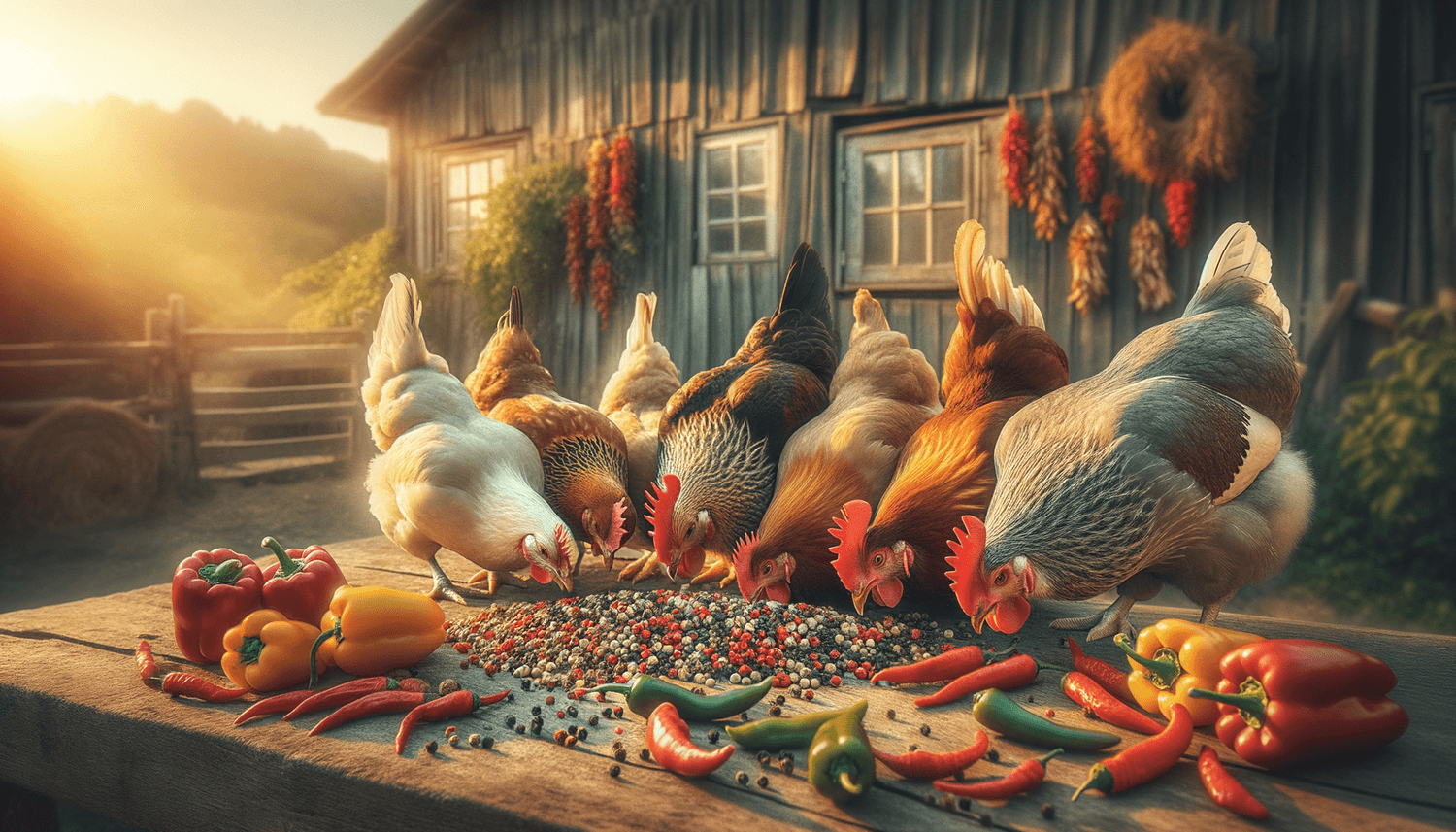Hey there, chicken enthusiasts! Have you ever wondered if your fine feathered friends can enjoy a spicy little snack in the form of pepper seeds? Well, you’ve come to the right place! In this playful and informative post, we’ll explore whether or not chickens can eat pepper seeds, the importance of maintaining a balanced diet for our clucking companions, potential benefits and risks associated with these fiery treats, their nutritional value, and tips on how to prepare and serve them. So, buckle up, grab your favorite pair of chicken-print kitchen mitts, and let’s dig in!
Can chickens eat pepper seeds?
Yes, chickens can safely eat pepper seeds! In fact, birds, including chickens, are unable to taste the spicy heat that humans feel when consuming pepper seeds, thanks to their lack of the heat-sensitive taste receptor. However, always remember to offer pepper seeds as a treat in moderation, and ensure your feathery friends receive a balanced diet.
A balanced diet for backyard chickens
Just as humans thrive on a well-rounded diet, our beloved backyard chickens need a balanced combination of nutrients to stay healthy and happy. The primary component of a chicken’s diet should be high-quality chicken feed, making up approximately 80-90% of their daily intake. Chicken feed is designed to provide them with essential nutrients such as proteins, carbohydrates, fats, vitamins, and minerals that support their growth and productivity.
The remaining 10-20% of a chicken’s diet can be complemented with treats like fruits and vegetables. These tasty morsels not only offer additional vitamins and minerals, but they also provide variety and excitement during mealtime. But remember, moderation is key: overindulgence in treats can lead to nutrient imbalances and potential health issues. So, have fun treating your flock to occasional nibbles but keep their overall well-being at the forefront!
Nutritional value of pepper seeds for chickens.
Feeding pepper seeds to chickens can provide them with some nutritional benefits. Pepper seeds, like the peppers themselves, contain vitamins and minerals that can be advantageous to your flock’s health. Notable vitamins include vitamin A, which helps support eye health and the immune system, and vitamin C, which aids in iron absorption and helps maintain healthy skin, feathers, and bones.
In addition to vitamins, pepper seeds also offer a few essential minerals, such as calcium and potassium. Calcium is crucial for strong eggshells and bone health, while potassium plays a vital role in maintaining fluid balance and proper muscle function. Furthermore, since peppers have a high water content, they may provide a bit of hydration for your chickens, which can be particularly helpful during hot summer days.
While pepper seeds are not a primary source of energy or protein for chickens, they can still serve as a valuable treat and enrich the overall quality of their diet. However, always ensure that these fiery bites only make up a small portion of your birds’ food intake and that the bulk of their diet consists of a high-quality chicken feed that supplies their primary nutritional requirements.
Nutrition table of pepper seeds for chickens.
| Information | Description |
|---|---|
| Nutritional Value | Pepper seeds provide vitamins A and C, calcium, and potassium. |
| Suggested Serving Size | Offer pepper seeds in moderation, making up only a small part of their overall diet. |
| Safe Feeding Practices | Introduce pepper seeds gradually and monitor for any adverse reactions in your flock. |
| Preparation | Rinse and chop peppers, then remove stems before providing them to your chickens. |
| Potential Risks | Overfeeding can lead to nutrient imbalances and potential health issues. |
| Hydration | Peppers have high water content, providing some hydration for your chickens. |
| Digestion | Chickens are able to digest pepper seeds without any issues. |
| Seasonal Availability | Pepper seeds are generally available year-round, with peak availability in summer and fall. |
| Other Benefits | Adding variety to your chickens’ diet and supporting their immune system, skin, feathers, and bones. |
Introducing pepper seeds to your flock
When you’re ready to let your chickens enjoy the zesty treat of pepper seeds, be sure to introduce them gradually. It’s always a good idea to monitor your flock when introducing a new treat to their diet, to ensure they don’t experience any adverse reactions. Also, pay attention to the consumption of their regular chicken feed to ensure they still get the essential nutrients it provides.
Storing and preserving pepper seeds
Peppers and their seeds can be stored in several ways to make them last longer. Keeping fresh peppers in the crisper drawer of your refrigerator can slow down their deterioration for several days to a week. Conversely, peppers can be chopped and stored in airtight containers or plastic bags in the freezer, making it convenient to thaw and chop into smaller pieces for your backyard buddies whenever needed. For those interested in a more traditional approach, you can also dehydrate and store pepper seeds in air-tight containers for several months.
Feeding your chickens pepper seeds can not only add variety to their diet, but also offer them additional vitamins, minerals, and hydration. Although chickens are unable to taste the heat of the seeds, they will appreciate the change in texture and flavor. Just remember that moderation is key! Keep the pepper seeds as a treat, and ensure your chickens get the bulk of their nutrients from high-quality chicken feed. So go ahead and let your feathered friends savor the flavor of pepper seeds while maintaining a balanced diet that keeps them healthy and happy!

















